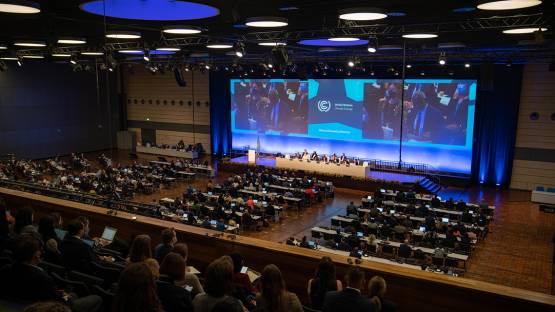With extreme weather events becoming more and more frequent, there is an urgent need for energy systems not only to be low carbon but also sufficiently robust and resilient to avoid blackouts and other losses. And climate-resilient nuclear power has a lot to offer in this area. That was the message from an IAEA event held on the side lines of the UNFCCC Bonn Climate Change conference.
Building on its presence at COP26, which helped with the inclusion of nuclear power in the global climate and energy debate, the IAEA took another step forward in its engagement with the UN body responsible for supporting the global response to global warming by holding its first side event in connection with the UNFCCC Session of the Subsidiary Body for Scientific and Technological Advice. That regular mid-year gathering helps prepare for the annual UN Climate Change Conference in November, to be hosted this year by Egypt.
The IAEA hybrid event on 13 June took place against the backdrop of an increasing number of extreme weather incidents such as heatwaves, firestorms, floods and cold snaps that have disrupted energy supplies and knocked out electricity grids around the world—from Africa, Asia and Australia to the Americas and Europe. “Most countries are likely to experience more frequent or intense extreme weather, water and climate events,” said Maxx Dilley, Director of the Climate Programme at the World Meteorological Organization.
Extreme weather “poses an increasing threat to electricity systems,” said Jinsun Lim, Energy and Environment Policy Analyst at the International Energy Agency (IEA). “Climate change directly affects every segment of the electricity system. It impacts the generation potential, the transmission and distribution as well as the demand patterns.”





